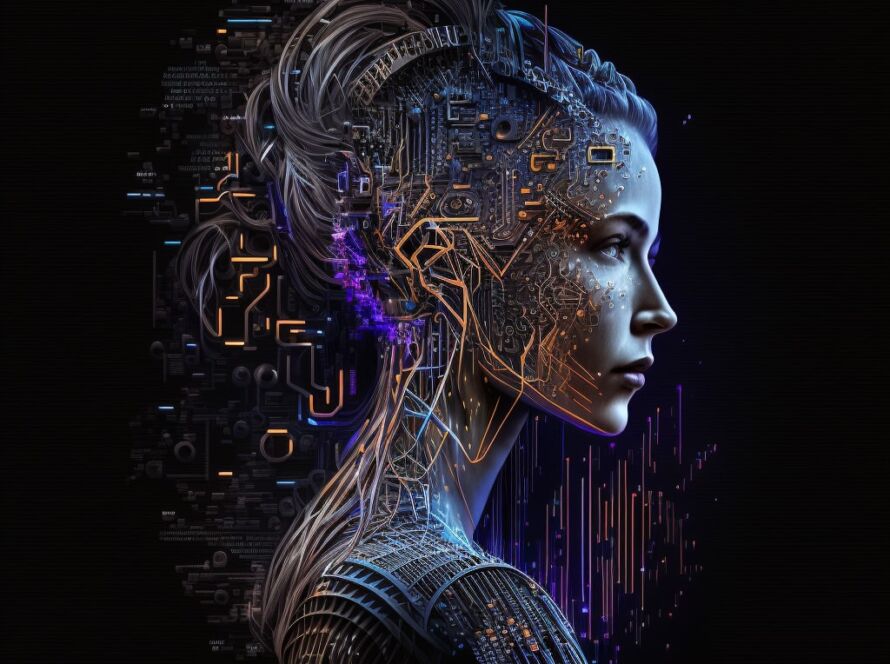The idea of synthetic minds—intelligent machines capable of reasoning, learning, and problem-solving—has long been a fascination in science fiction. Today, advancements in artificial intelligence (AI) and machine learning are making this concept a reality. Synthetic minds, powered by complex algorithms and vast computational power, are rapidly becoming a part of everyday life. From revolutionizing industries to tackling some of humanity’s biggest challenges, the potential of synthetic minds is immense. This article explores how unleashing the potential of synthetic minds can reshape our world, as well as the challenges we face in realizing their full promise.


The Rise of Synthetic Minds
Synthetic minds refer to AI systems that mimic cognitive functions traditionally associated with human intelligence, such as understanding language, recognizing patterns, and making decisions. Unlike narrow AI, which is designed to perform specific tasks (e.g., image recognition or language translation), synthetic minds aim to achieve more general-purpose intelligence. These advanced systems can analyze large amounts of data, learn from experience, and improve over time, often reaching or exceeding human-level performance in certain areas.
The growing capabilities of synthetic minds can be seen in applications across various fields, including healthcare, finance, transportation, and even creative industries like art and music. Their potential to augment human capabilities and solve complex problems has sparked interest among researchers, businesses, and governments worldwide.
Transforming Industries with Synthetic Minds
- Healthcare Revolution
One of the most promising areas for synthetic minds is healthcare. AI-driven algorithms are being used to diagnose diseases, predict patient outcomes, and recommend personalized treatments. Synthetic minds can analyze medical images, such as MRIs or X-rays, to detect abnormalities with high accuracy, sometimes even outperforming human doctors. For example, synthetic minds trained on vast datasets can identify signs of early-stage cancer that may be missed by human radiologists.
Moreover, synthetic minds are transforming drug discovery by predicting the effectiveness of new compounds, accelerating the development of life-saving treatments. By analyzing genetic data, environmental factors, and medical histories, AI-powered synthetic minds can also help create personalized medicine, where treatments are tailored to individual patients for maximum efficacy.
- Revolutionizing Transportation
The transportation industry is on the cusp of a transformation, thanks to synthetic minds. Autonomous vehicles, which rely on AI algorithms to navigate roads and make driving decisions, are becoming more sophisticated. Self-driving cars and trucks could reduce traffic accidents caused by human error and make transportation more efficient by optimizing routes and fuel consumption.
Synthetic minds are also playing a key role in logistics, where they help optimize supply chains by predicting demand, reducing delivery times, and minimizing costs. This has significant implications for global commerce, making the movement of goods faster and more sustainable.
From revolutionizing industries to tackling some of humanity’s biggest challenges, the potential of synthetic minds is immense.
Solving Complex Global Challenges
Beyond specific industries, synthetic minds hold the potential to address some of humanity’s most pressing problems. For instance, climate change is a complex issue that requires innovative solutions. AI-powered synthetic minds can analyze vast amounts of environmental data to predict the impact of human activities, monitor deforestation, and recommend sustainable practices. By identifying patterns in climate data, synthetic minds can help researchers develop strategies to mitigate the effects of global warming.
In agriculture, synthetic minds can optimize crop management by predicting weather conditions, detecting diseases, and recommending efficient irrigation practices. This can lead to higher crop yields, improved food security, and more sustainable farming methods, which are essential for feeding a growing global population.

The Creative Potential of Synthetic Minds
Synthetic minds are not limited to practical applications; they also have the potential to unleash new forms of creativity. AI-generated art, music, and literature are gaining popularity, challenging traditional notions of creativity and authorship. For example, AI systems can compose music, generate visual art, or even write poetry, often producing results that are indistinguishable from human-created works.
While some may argue that creativity is inherently human, synthetic minds offer new tools for artists, musicians, and writers to experiment with different styles and techniques. By collaborating with synthetic minds, creators can push the boundaries of their craft and explore new artistic frontiers.
Challenges in Unleashing Synthetic Minds
Despite their potential, there are challenges in fully unleashing the capabilities of synthetic minds. Ethical concerns around AI use, such as data privacy, algorithmic bias, and the impact on employment, must be addressed. The “black box” nature of some AI systems, where decision-making processes are not easily explainable, poses risks in high-stakes applications like healthcare and criminal justice.
Furthermore, achieving truly general-purpose synthetic minds that can understand and solve problems across multiple domains remains a significant hurdle. Current AI systems are still limited in their ability to transfer learning from one task to another, highlighting the need for continued research in this area.
Unleashing the potential of synthetic minds presents opportunities to revolutionize industries, solve global challenges, and expand the boundaries of human creativity. As we move forward, it is crucial to address the ethical and technical challenges associated with AI development. By doing so, we can ensure that synthetic minds are used responsibly, benefitting society as a whole and paving the way for a future where intelligent machines work alongside humans to create a better world. The era of synthetic minds has arrived, and with it comes a new wave of possibilities waiting to be explored.




